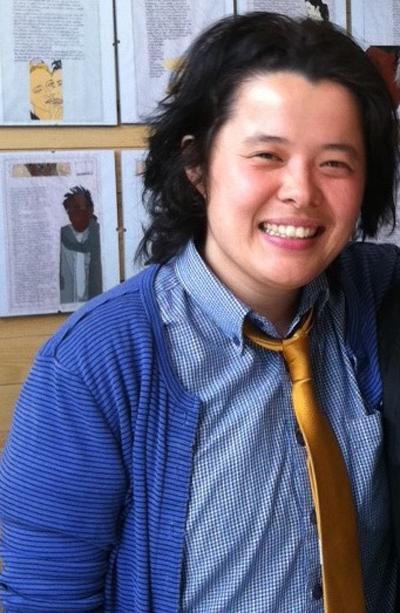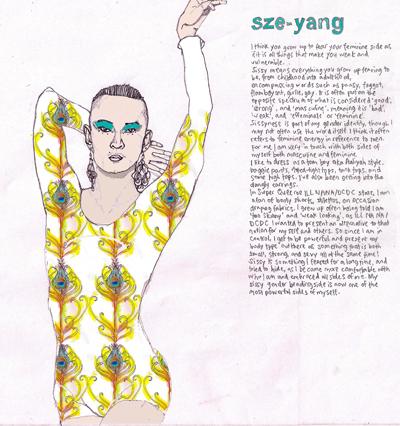Comic artist Elisha Lim first gained international acclaim with the 2010 book 100 Butches, and then notoriety when Lim refused to be referred to as “she” in interviews. “On a personal level I really believe that there are people who don’t fall in [the gender categories of] men and women,” says Lim, who prefers the pronoun “they . . . There are more than ‘he’ and ‘she’ in this world, and if there were six genders, I’d be number five.”
Lim is talking politics on the eve of the Montreal launch of the follow-up to 100 Butches – Lim’s Sissy 2012 calendar, which will be launched at a Nov 26 Montreal benefit to save that city’s volunteer-run Ste-Emilie Skillshare space for queer artists. Ste-Emilie owes more than $3,500 in bills, including $2,300 for rent and $1,300 for hydro.
“We’re a community art space run primarily by and for queer and trans people and people of colour,” says Ste-Emilie organizer Walker Oliver. “We aim to provide community members with accessible art resources and programming and to promote artistic expression and self-representation within marginalized communities.”
Skillshare has a paper and fabric silkscreen studio, a black and white darkroom, sewing machines, and its Ste-Em gallery space, which hosts workshops, meetings, vernissages and parties.
To help pay the bills, queer hip-hop collective Rough Diamond is hosting the Nov 26 Calling All Sissies benefit dance party at the Ste Emilie Skillshare, where Lim will launch the 2012 Sissy calendar. The artwork picks up where 100 Butches left off, with models from London, Berlin, Montreal and Toronto. When I ask about it, Lim replies, “I’ll tell you a public secret: the whole first half of my art career was all tracing. I used the computer. I put paper up against the screen and just traced photographs of people because I’d never been to art school and didn’t consider myself to be an artist at the time. I had no confidence.”
In fact, Lim did not want to be a comic artist as a kid and came into it by accident. “I was 25 and engaged to a man when I went to see a fortune teller [in 2004], and she changed my life,” says Lim, now 33. “At the time I was trying to become a [newspaper] reporter and a musician as well. And the fortune teller told me, ‘You have to quit because they’re both going to flop.’ But she said that art would make me famous. She also told me I wasn’t going to marry this guy I was with. She wasn’t wrong.”
The rest, as they say, is history. But that back story is why Lim is so keen on this fundraising benefit for the Ste-Emilie Skillshare.
“Some things need to be done outside of art school, in a space where people can be creative, muck things up with their hands, play with paint and get themselves dirty without being in an art-school setting,” Lim says. “It’s like me tracing the screen until I figured it out.”



 Why you can trust Xtra
Why you can trust Xtra


